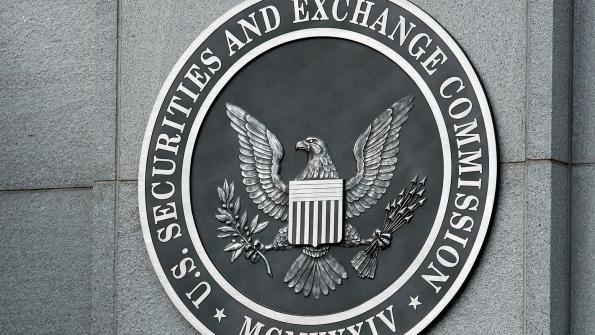Securities and Exchange Commission examiners will look to see that firms are putting “reasonable” policies in place to avoid violations of its marketing rule in exams conducted after the rule’s Nov. 4 compliance date passes.
The SEC’s Division of Examinations released a risk alert on Monday highlighting “upcoming review areas of examination” related to the rule, which was adopted in December 2020 and purported to modernize advertising restrictions that had not been updated in decades, including the use of testimonials and investment performance.
In the risk alert, the DOE argued it would look for policies and procedures “reasonably designed to prevent violations” of the new rule, and that those policies and procedures should include “objective and testable means” to determine and prevent violations.
“Examples of objective and testable means could include, but are not limited to, conducting an internal pre-review and approval of advertisements, reviewing a sample of advertisements based on risk, or pre-approving templates,” the risk alert read.
The risk alert also highlighted that firms will need to believe they can “substantiate” statements included in advertisements. According to examiners, advisors could demonstrate this in a number of ways, including making a record “contemporaneous with the advertisement” that shows it, and firms could also enact policies to make sure the requirement is met.
“However, if an advisor is unable to substantiate the material claims of fact made in an advertisement when the commission demands it, we will presume that the advisor did not have a reasonable basis for its belief,” the risk alert read in a quote from the original release.
The DOE staff would also examine whether advisors were adequately prohibiting certain things from ads, including statements on gross performance (unless net performance was also included), any performance results that didn’t include specific time periods, performance results of investments extracted from a full portfolio without providing (or offering to provide) results from the total portfolio.
Examiners would also look to see that firms prohibited hypothetical and predecessor performance (unless under certain conditions), as well as any indication that the SEC has “approved or reviewed any calculation or presentation of performance results.” Examiners also reminded advisors of the need to complete certain compliance questions on marketing for their next amendment of their Form ADVs.
As of May, more than six out of 10 RIAs who’d filed their Form ADV amendments left sections on compliance with the marketing rule completely blank, suggesting that firms were still determining how best to meet the rule’s requirements, according to an analysis and survey from the fintech platform IndyFin. For two years in a row in a survey by the Investment Adviser Association, the marketing rule was the top compliance topic for advisors, with almost eight out of 10 respondents calling it their primary concern.


